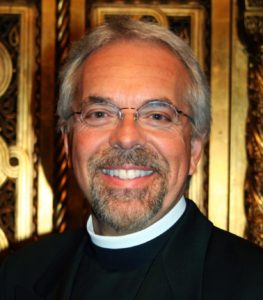
Fr Frank Marangos
Source: OINOS Educational Consulting
by Frank Marangos, D.Min., Ed.D., FCEP
The Word of the Year is a word or phrase that Oxford judges to aptly reflect “the ethos, mood, or preoccupations of the passing year, and has lasting potential as a term of cultural significance.” In 2017 the Word of the Year was “youth-quake,” defined as a significant cultural, political, or social change arising from the actions or influence of young people.” Influenced by the Brexit referendum and the general political landscape, “post-truth” was chosen as Oxford’s word for 2016.
According to the publisher’s website, “toxic” was chosen from a shortlist “drawn from evidence gathered by (its) extensive language research program which gathers around 150 million words of current English from web-based publications each month.” Apart from being used in an array of contexts, both in its literal and more metaphorical senses, the word “toxic” had a 45% rise in the number of times it was referenced in 2018.
As a neologism that describes the current zeitgeist, Oxford is correct in linking “toxicity” to pollutants that endanger relationships, organizations, schools, and churches. Since its inauguration, the 21st Century has unfortunately been plagued by a number of corrupt and unethical leadership scandals. Moral deficiencies have been prevalent among leaders in the public, private, political, and faith-based sectors. Most recently, the algae of toxic leadership have been exposed in the crucibles of political partisanship, sexual harassment, religious hierarchies, media-wars, and unethical investment ruses. As a result, there is a pressing need for leaders to honestly assess the levels of toxicity within themselves and the cultures of their respective organizations.
In his book, Reflections on the Psalms (1986), the British novelist and Christian theologian C.S. Lewis referred to the 19th Psalm as “the greatest poem in the Psalter and one of the greatest lyrics in the world.” Apart from its elegant theological poetry, the 19th Psalm of the 19th Book of the Bible provides valuable insights to leaders who are interested in detoxifying themselves and their respective organizations during the 19th year of the to the 21st Century.
The 19th Paean of David celebrates the value of God’s creative Word. According to Israel’s 2nd King, the insights contained in the Word of the Lord, as found in His “Law,” are superior to secular wisdom and material wealth. The first part (1-6) of Psalm 19 highlights the implications of God’s Word “spoken” (communicated) through the created order. While the second section (7-10), focuses on the value of God’s Word communicated in His “Law,” the third and final section (11-14), draws attention to the “servant” who has the wisdom to pray that God’s Word “cleans,” “preserve,” and “orders” his/her life “blamelessly.”
According to Israel’s intuitive political and spiritual leader, the Commandments found in God’s Law are “pure.” Consequently, if respected, they “enlighten” leaders with the requisite knowledge and discernment for making appropriate decisions. While the “Fear of the Lord” is that aspect of His Word that nurtures a “reverential respect” for God that can help leaders remain “clean,” Judgements are those aspects of the Lord’s moral system of “truth and justice” that regulate interpersonal relationships and society.
The 19th Psalm celebrates the detoxifying value of God’s Word as something “more precious than fine gold and sweeter than honey and the honeycomb” (19:10). While not advocating works of righteousness, the Psalmist contends that adherence to this Word “revives the soul,” “makes wise the simple,” and “enlightens the eyes.” King David concludes his enlightening Canticle with a beautiful prayer: “Let the words of my mouth and the meditation of my heart be acceptable in Your sight, O Lord, my Rock and my Redeemer” (19:14).
Understood in such a holistic fashion, the 19th Psalm has much to offer the 21st Century leader interested in “detoxifying” their hearts, words, and actions. But what exactly is “toxic leadership” and how can it be effectively expurgated?


